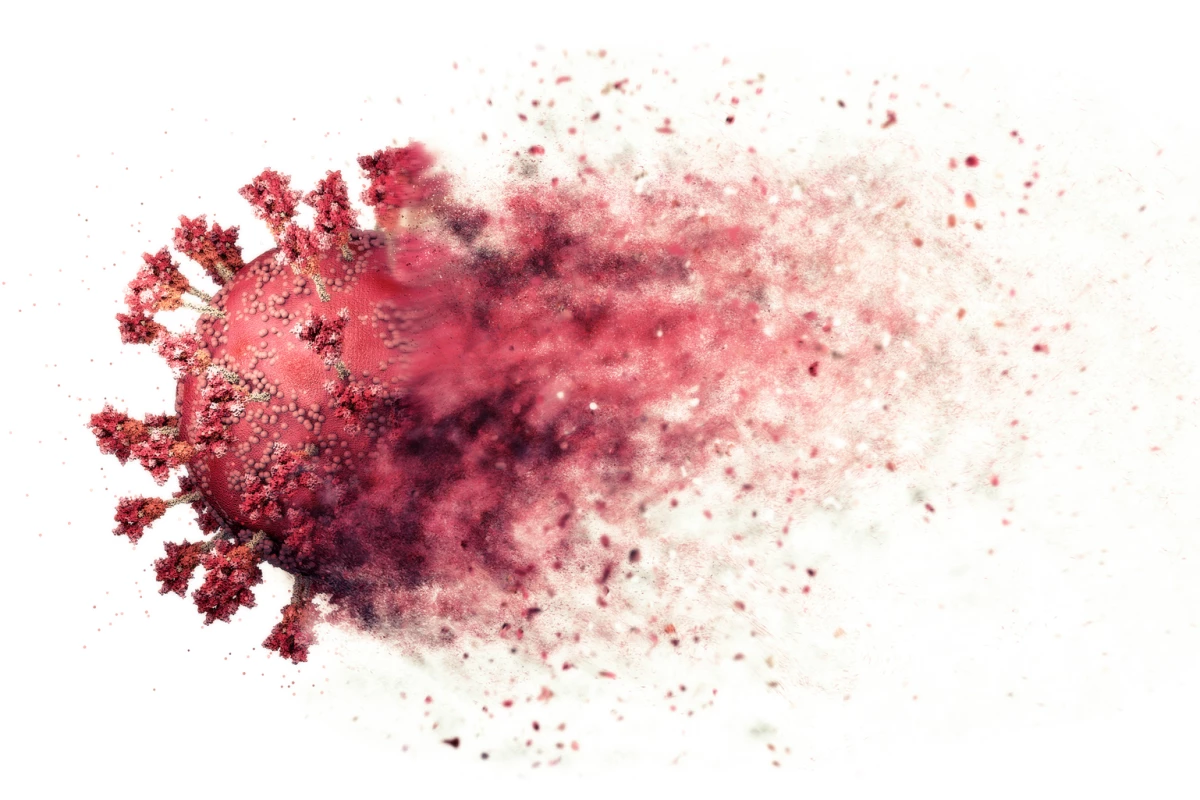A new study from researchers at the University of Oxford has found two doses of either the Pfizer or AstraZeneca COVID-19 vaccine may not be enough to protect against infection from the Omicron variant. The data offers no indication of protection from severe disease, but shows two doses will not be enough to prevent Omicron infection in most people.
As scientists race to learn more about the newly emerged SARS-CoV-2 Omicron variant, laboratory studies are beginning to offer insights into how this viral variant responds to vaccine-induced antibodies. This new study, available as a preprint and not yet peer-reviewed or published in a journal, looked at the way antibodies generated after two-doses of COVID-19 vaccines responded to an isolate of Omicron gathered from an infected case in the UK.
Blood samples were tested from individuals taken around four weeks following a second dose of either Pfizer’s mRNA vaccine or the AstraZeneca vaccine. The researchers were looking at what are known as neutralizing titres, a measure of an antibody response generated in reaction to a virus.
Two doses of AstraZeneca fared the worst with the study indicating neutralizing titres dropped to below detectable thresholds in all but one sample. The Pfizer vaccine fared marginally better, with only one sample dropping below the detectable threshold for neutralizing titres. However, the researchers still saw an average 30 fold reduction in neutralizing titres for two doses of Pfizer compared to the antibody responses seen with an earlier strain of the virus.
The study is cautious to note these findings do not indicate two doses of either vaccine will be ineffective at preventing severe disease, hospitalization or death from COVID-19. Antibody responses are just one part of the immune system response to a viral threat, and while antibody responses do generally play a major role in preventing initial infection, other immune cells jump into gear to kill and clear a virus once it has taken hold.
This data foreshadows Omicron leading to higher rates of breakthrough infections in those with only two vaccine doses. And although the severity of disease caused by Omicron is still unclear, the researchers stress more cases will inevitably lead to a greater burden on healthcare systems even if the variant is found to generally lead to milder disease.
“Whilst there is no evidence for increased risk of severe disease, or death, from the virus amongst vaccinated populations, we must remain cautious, as greater case numbers will still place a considerable burden on healthcare systems,” says Gavin Screaton, lead author on the new study.
The study offers no new insight into the effect of three vaccine doses against Omicron, but the researchers hypothesize an extra dose will boost neutralizing antibody responses significantly. A recent study from Pfizer offers valuable data affirming that hypothesis.
These new findings have somewhat informed the recent push to offer a third mRNA vaccine dose to all adults in England as soon as three months past a second dose. In the UK, the prevalence of AstraZeneca and the massive growth in Omicron cases led Prime Minister Boris Johnson to recently declare an “Omicron emergency”. The UK government is looking to administer third doses to tens of millions of people by the end of the year.
The new Oxford study is available on the preprint server MedRxiv.
Source: University of Oxford




